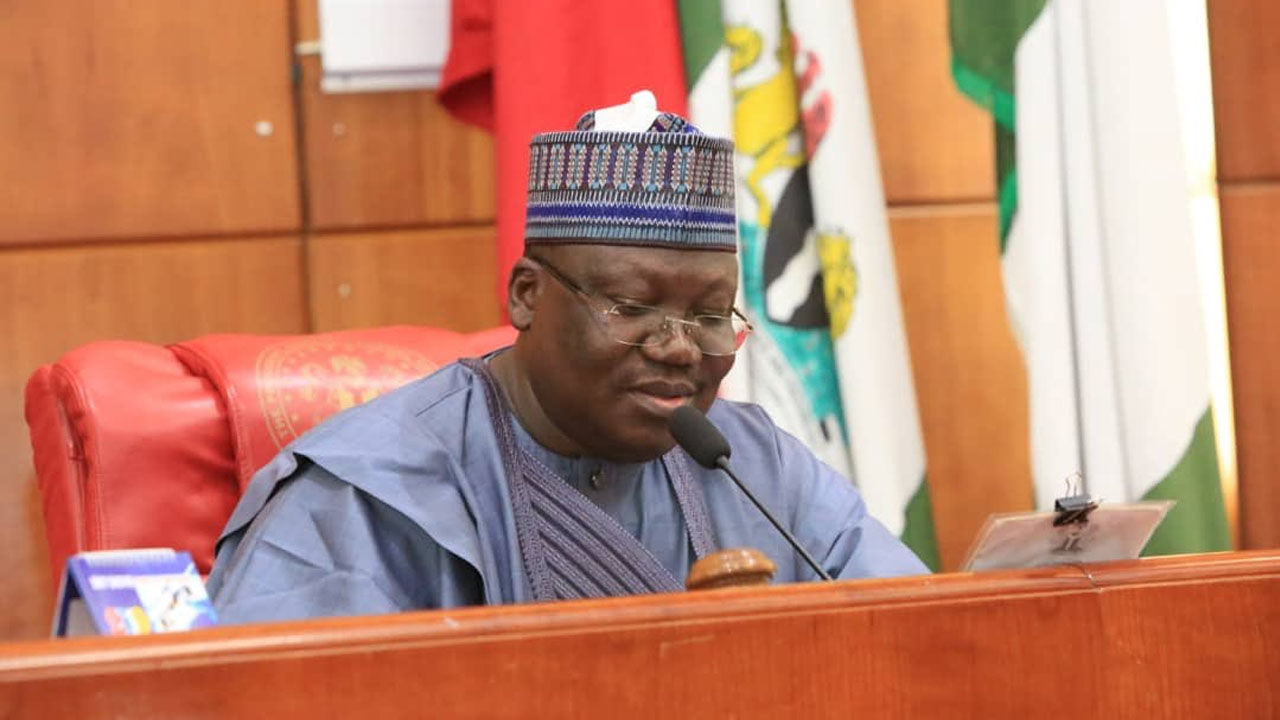The Minister of Women Affairs, Hajiya Imaan Sulaiman-Ibrahim, has said that closing gender gaps will add ₦15 trillion to Nigeria’s Gross Domestic Product (GDP) annually by 2025.
She stressed the need for a renewed national commitment to creating a society where every woman, child, man, and boy can live free from fear and violence.
The minister disclosed this in Abuja during a joint UN Accountability Stakeholders Forum and Orange/Lighting ceremony, themed: “Towards Beijing +30: Unite to End Violence Against Women and Girls.”
Sulaiman-Ibrahim said: “Studies have shown that countries with high levels of gender equality experience faster economic growth, improved governance, and more stable societies.
“For Nigeria, closing gender gaps has the potential to add ₦15 trillion to our GDP annually by 2025. Women constitute over 50% of our population. They account for 41% of small and medium-scale enterprise owners, yet their representation in senior leadership is just 22%, with only 3.6% holding seats in parliament.
“These disparities represent untapped potential that could drive our nation’s development forward. The cost of not taking action is significant. Globally, the economic cost of gender-based violence is estimated at about ₦1.5 trillion annually.
“In Nigeria, this violence not only causes profound human suffering but also imposes substantial public health and productivity costs. It is clear that investing in the prevention of GBV and the promotion of gender equality is not just an ethical necessity; it’s an economic imperative.”
In her remarks, the UN Women’s Deputy Representative to Nigeria, Dr. Nesreen El Molla, outlined ongoing efforts to address gender-based violence.
She stressed investments in holistic services for GBV survivors, including shelters, expanded services, improved policies, and partnerships with community leaders to combat harmful practices.
El Molla said: “In Nigeria, gender-based violence remains pervasive and deeply rooted. One in three women experiences physical or sexual violence in her lifetime. And this is only what is reported. Harmful practices such as child marriage and female genital mutilation (FGM) persist at alarming rates.
READ ALSO:
“Today’s event is an opportunity for all of us to renew our efforts to advocate for a Nigeria that is free from violence against women and girls. It is also an opportunity to continue to address harmful norms by engaging and working closely with our allies — the traditional and faith leaders, the private sector, and communities — in reshaping the narrative around gender equality.
“Behind every statistic is a woman or girl whose potential has been stifled, whose rights have been violated. The socio-economic burden of violence against women and girls continues to hinder Nigeria’s growth and development.
“Today is an opportunity to remind ourselves that we need to invest in prevention and response mechanisms to prevent violence against women and girls.
“Nigeria has been leading the operationalization and domestication of the Violence Against Persons Prohibition (VAPP) Act, now enacted in 35 states. The domestication of the VAPP Act, supported by UN Women, has been a key milestone in combating GBV.”
Also speaking at the event, the Head of Office and Country Representative of the United Nations Educational, Scientific and Cultural Organization (UNESCO) to Nigeria, Abdourahamane Diablo, reaffirmed the organization’s commitment to ending GBV, advancing gender equality, and promoting girl-child education.
He said: “UNESCO aligns strongly with the goals of the Beijing Platform for Action, particularly in advancing gender equality through education and eradicating gender-based violence.”
He highlighted UNESCO’s focus on addressing emerging challenges, such as biases in artificial intelligence (AI), which perpetuate new forms of violence against female public figures.
He added, “UNESCO is committed to combating the sexist biases reproduced by artificial intelligence, which are responsible for new forms of violence regularly targeting female public figures.
“In 2023, the organisation established the Women for Ethical AI Network, designed to regulate these abuses by promoting good practices.
“As we reflect on the progress made since the Beijing Declaration and Platform for Action, we must recommit ourselves to creating a world where women and girls are safe, educated, and empowered. Together, through collaboration and innovation, we can make this vision a reality.”






